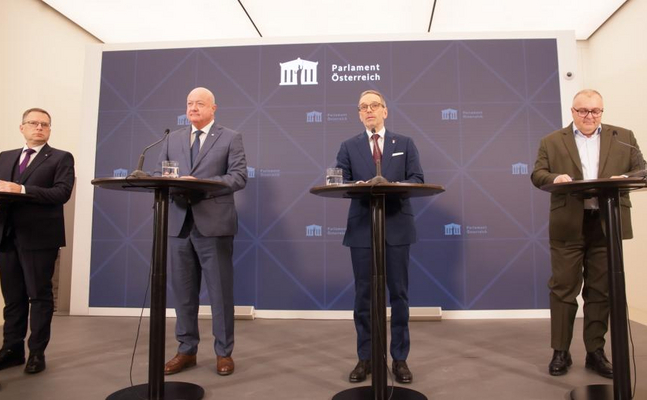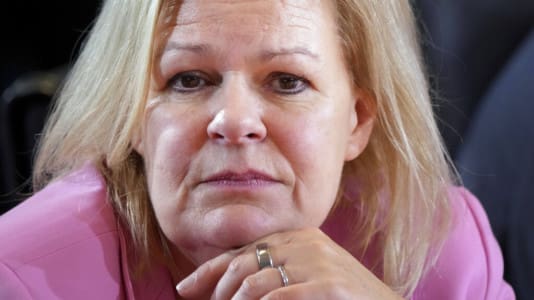Leaders of the right-wing Austria Freedom Party (FPÖ) and the liberal-conservative Austrian People’s Party (ÖVP) announced their joint plan on Monday to stabilize the country’s financial future and avert a looming EU deficit procedure.
At a press conference in Vienna, the two parties announced a landmark budgetary agreement as part of wider coalition talks to balance the books and ensure Austria’s economic sovereignty is shielded from increasing external control by the European Union.
The event featured FPÖ Federal Party Chairman Herbert Kickl, FPÖ National Council Member Arnold Schiefer, ÖVP Federal Party Chairman Christian Stocker, and ÖVP Parliamentary Group Chairman August Wöginger.
Austria’s budgetary challenges stem from significant public debt and a widening deficit, which the economic think-tank Wifo predicts will increase to 4.2 percent this year without corrective action.
“Problems do not solve themselves; they grow more threatening the longer we stand by. Austria’s debt burden is a massive issue impacting our collective future,” said Kickl. Stressing the need for a decisive approach, he added, “Not acting is not an option. Behind the numbers lies the core question: What will life in Austria look like in the years to come?”
The agreement outlines a €6.3 billion package designed to prevent an EU deficit procedure while avoiding any new taxes. Kickl emphasized that the measures include closing tax loopholes used by multinational corporations and reducing costs and bureaucracy within government ministries.
As the party pledged during its successful election campaign, Kickl ruled out any rise in inheritance, gift, or wealth taxes, and vowed to introduce measures to stimulate the labor market.
“This package represents a fire-fighting operation to prevent a wildfire. Austria will retain its ability to shape its future independently of Brussels,” Kickl said. The leaders stressed that without intervention, rising debt interest costs could adversely impact entrepreneurs, consumers, and borrowers alike.
Kickl expressed confidence that the measures would pave the way for greater financial flexibility as early as 2026. While acknowledging that the debt burden has complicated Austria’s economic goals, he remained optimistic. “This requires time, strength, and solidarity. Clearing the debt avalanche will enable a path to a prosperous future,” he stated.
His party colleague, Arnold Schiefer, highlighted the need for fiscal discipline. “It is our shared view that the future budget path in the coming years will have to move along or below the 3 percent new debt line,” he said. “With the phased involvement of the Ministry of Finance, we were able to put together a countermeasures package worth more than €6 billion, which will now also be discussed in Brussels in the middle of the week.”
Talks remain ongoing between the FPÖ and ÖVP regarding the formation of the new Austrian government, a prospect that had initially been categorically ruled out by the latter.
Kickl’s FPÖ emerged victorious in the September 2024 elections. However, a fractured political landscape initially left the party sidelined, as Austria’s federal president, Alexander Van der Bellen, bypassed Kickl in favor of other coalition possibilities after the country’s legacy parties ruled out any deal that would see Kickl become chancellor.
After negotiations between the ÖVP and Socialists collapsed, the ÖVP’s new federal party chairman, Christian Stocker, expressed a willingness to negotiate with Kickl.






